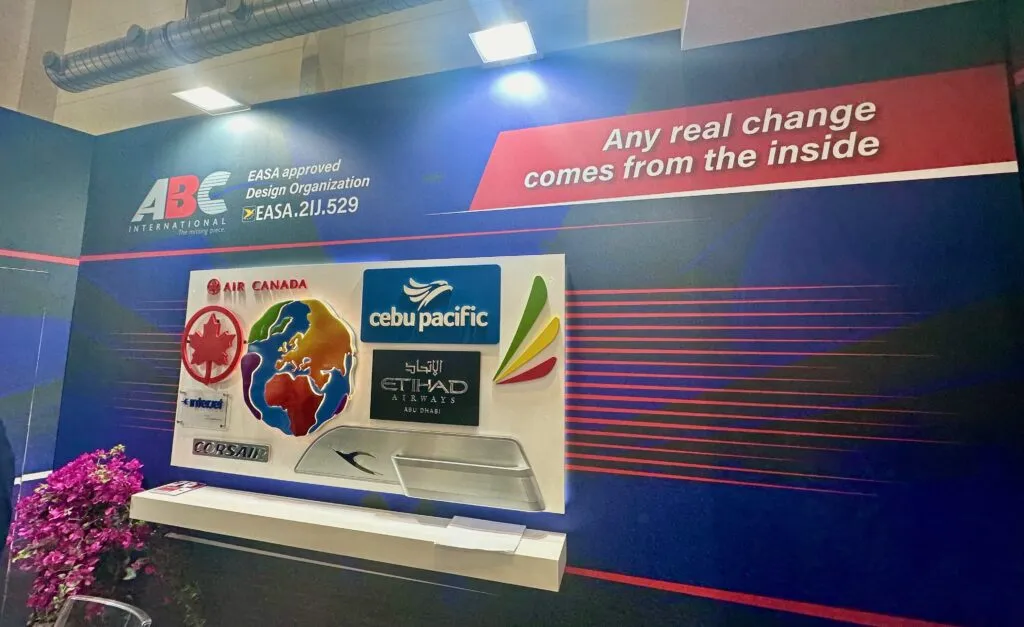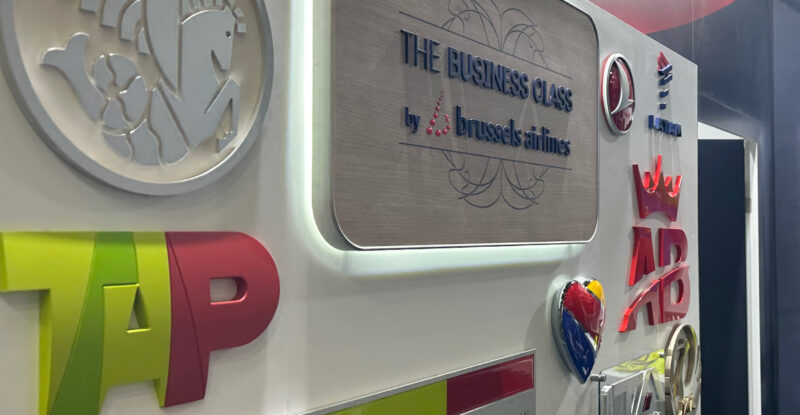As passenger traffic roars back to pre-Covid levels, cabin branding and aircraft interior modification specialist ABC International has observed a change in behavior on the part of airlines. Gone are the days when long lead times were the norm. Now airlines need cabin hardware and services like ‘yesterday’, says chief commercial officer Rodolfo Baldascino, only half joking. “It’s really 24 hours sometimes.”
This new paradigm has required ABC and other busy stakeholders in the sector to rethink their approach. “We have to remodel, reshape ourselves to follow their business model. We cannot change them because it’s not just one customer, one airline, or two or three. We are experiencing this with all of them,” confides Baldascino.
To meet airlines’ quick-turn needs including for aftermarket services, he says, ABC is adding “more flexibility, more people, more skill, more adaptability”. For instance, the firm will assign a dedicated project engineer to specific customers, especially when they guarantee a certain continuity of work. The project engineer may then tap several people to effectively work around the clock to execute on the project for the airline.
(Seatmakers, too, are trying to accommodate airlines’ rapid-delivery requests by offering fast track seat programs that balance production speed with very limited customisability.)
By embracing a more agile approach, ABC has gleaned more business and goodwill. “They know they’re asking something that was not asked before and sometimes it’s unreasonable,” explains Baldascino. So, the Naples, Italy-based firm is seeing “a new wave of customer loyalty and customer attention with airlines” with less of them doing “cherry picking” for cabin services, including DOA services, as ABC offers Part 21J engineering solutions to modify aircraft cabins to EASA standards.
Well documented supply chain bottlenecks in aviation add to the challenges, as do constraints around finding skilled labor. Industry is, after all, suffering from the one-two punch of a skilled talent exodus during Covid, and the fact that Gen Z seems a little less interested in aviation than prior generations. Is the latter a result of their concerns around aviation sustainability, RGN asked?
The ABC executive doesn’t think so, noting: “Young engineers have to study a lot; they have to look at the documentation and the regulations. [Even] if they may arrive to you well prepared from the university, then they have to study all the Airbus paperwork, all the Boeing paperwork, the frame specs, the aircraft specs before they can start, let’s say talking that language. It takes months. So it may not be fascinating for them based on the approach of the young generation today. That’s what I feel.”
He adds:
It’s very easy to find a social media manager. It’s much more complicated to find young, motivated, good engineers.
Cabin branding remains in the company’s DNA, but as previously reported by RGN, ABC differentiated its business during Covid and continues to do so after the shutdown era. Its mix of work is now roughly 60% or more for DOA and cabin refurbishment services whilst 40% is for cabin branding.
To support its growth, and ensure all products including soft furnishings, small monuments and cabin branding elements are under one roof — and to streamline DOA and quality-control work — ABC recently acquired a nearby Napoli manufacturing facility. This in turn will make the firm “faster, more flexible and be even more adaptable to customer needs”, Baldascino concludes.

ABC’s tagline, as seen on its stand at the Aircraft Interiors Expo 2024, is on point. “Any real change comes from the inside.”
Related Articles:
- Diehl Aviation pulls levers to tackle supply constraints: CEO Schuler
- ABC International delivers cabin branding to ITA Airways
- ABC International’s pivot to cabin modifications bears fruit
- Quick-turn, low customisation seat shipsets gain momentum
- JAL A350 interiors supply chain issues raise spectre of delays in 2024
- ABC International bolsters portfolio with new moveable class divider
- Recaro Aircraft Seating CEO flags continued shortage in IFE parts













